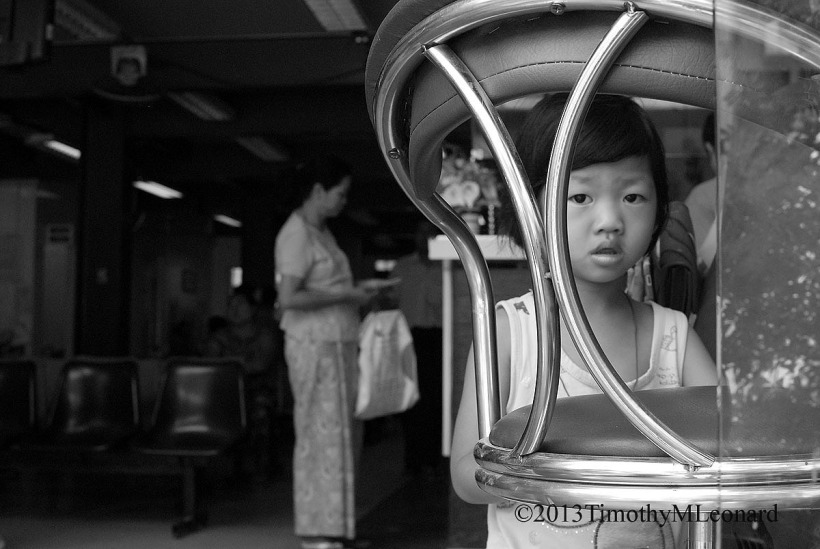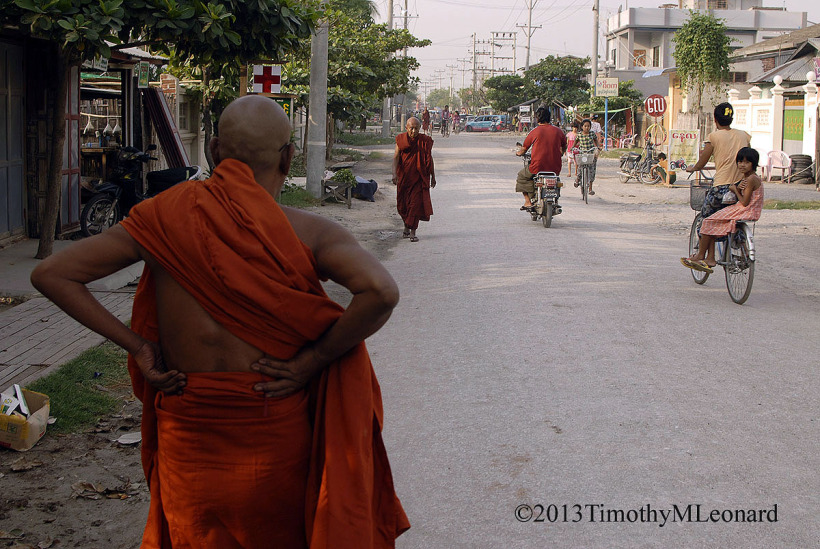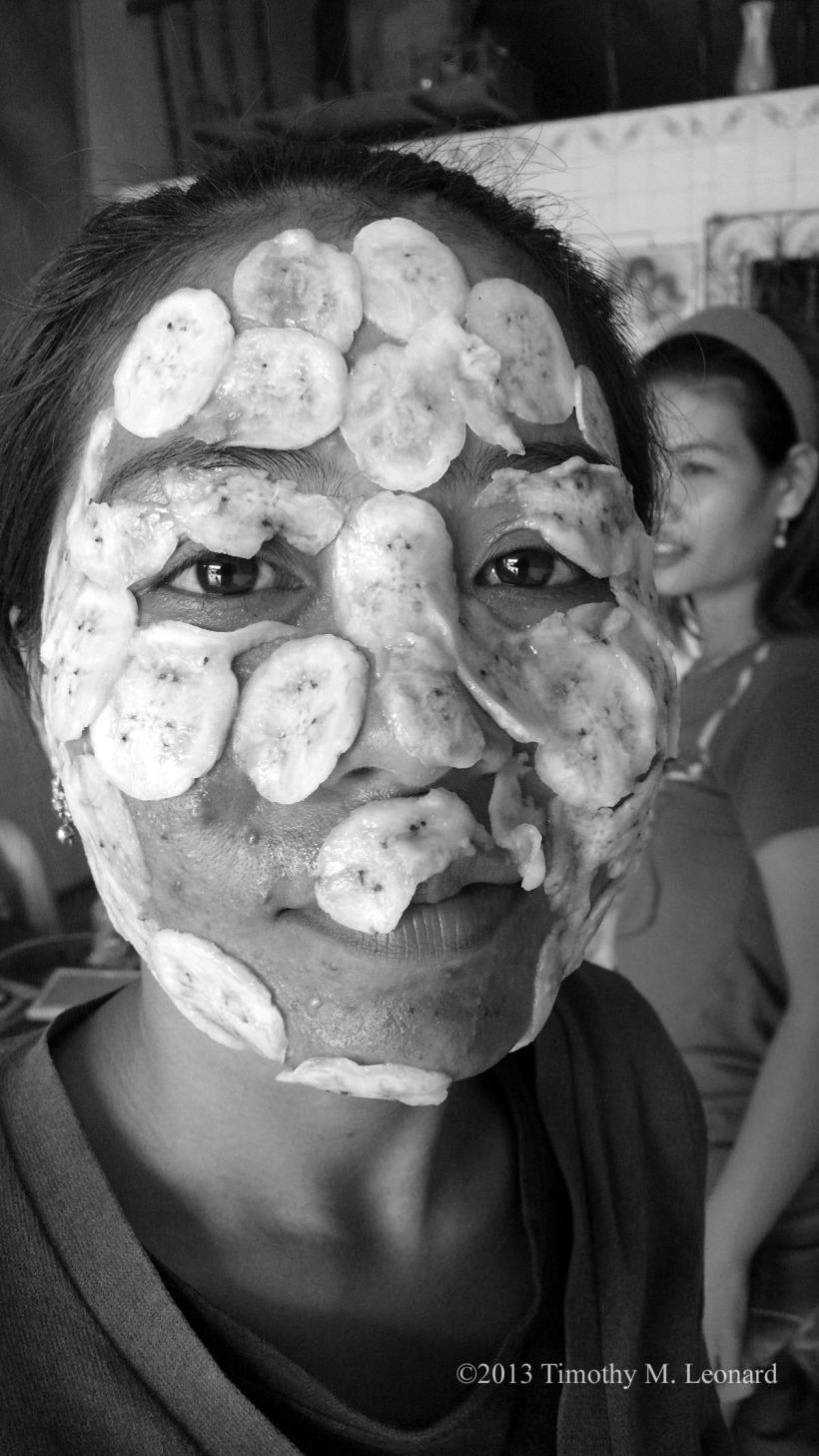Singing field holler Clarksdale blues, “Don’t cha know no’thin child?” I channel Elmore James and Robert Johnson by living, learning, laughing and loving.
Standing with my heart in bleeding hands down at the crossroads I traded my soul to the devil to play the blues.
Train whistles blew.
Above platform #5 long neck cranes flew west over Puget Sound.
“ALL ABOARD,” yelled porter Jon. I got on, the door closed and the Coast Starlight slid south.
“This is where you sleep. Upstairs is the observation car. They serve a continental breakfast at 10. Meals are included in your fare. You will be asked if you want the early or late dinner seating in the dining car.”
Train #11 rolled south along the Pacific Coast toward a railroad museum in Sacramento. Historical engines, freight cars, silver diners and big black coal stoking locomotives collected dust.
Construction maps, massive oil murals and Andrew Russell paintings of exhausted immigrants and eastern big shots in tuxedos.
15,000 Chinese workers laid 700 miles of track from Sack-of-Tomatoes to Promise Me A Story, Utah. They shoveled twenty pounds of rocks 400 times a day. 1,000 Chinese died hammering transportation rails. The Chinese built the West, Mormons the middle and Irish the East. The last spike in 1869 connected East-West railroads.

Travelers in the dome liner discussed characters. “He’s three French fries short of a happy meal,” said a Las Vegas nutrition teacher, pointing at a man.
“Eat fruits and veggies to reduce internal temperature for healthy results,” said CC, a doctor from central Mexico. We exchanged books about Eastern spiritual warriors.
CC read my palm lines. “You will come back as a bird, not a snake.”
“I am a screaming eagle.”
Her nails were perfect. “You have a long lifeline.”
“What do you see?”
“Your fate line indicates either a strong profession chosen by self or higher spirit. You have a strong will and there is conflict with a hidden self in your dreams.”
“I am a higher spirit.”
“The girdle of Venus indicates promiscuity. You have protection. A deep heart line shows a heavy first love. Other deep lines show lots of anger and resentment.”
I nodded. “An early life of confusion, separation, loss, and fear of emotional trust. Abandonment. Orphan heart awareness. Alcohol played a later role with manipulation and trust.”
“You had a lot of turmoil in early life and had to overcome a struggle and nourishment issues.”
“True. My mother contracted polio when I was five. I felt abandoned. It wasn’t my fault however I felt guilty. She had my brother then a sister. I was angry coping with the responsibility, emotional distance and siblings. She became angry and abusive. She died at forty-two. I escaped the house, hitched the country, survived Vietnam and explored the planet.”
“I see. You are a sucker for love but not a pushover. You are generous and not concerned about money. The height of your little finger indicates a high level of creativity.”
“What you say may not be real but it’s true. Or it’s not true and real. I’m working on detachment and discernment with clarity. You’re very good.”
“Thanks,” she said, smiling. “I don’t do many hands anymore, but I like you.”
Miles of rails tracking open land said hello big world. Spikes lay coast to coast. Labor. Rosie the Riveter sang her song.
“Rosie” was Rose Will Monroe, a riveter on B-29 and B-24 military planes at a Michigan production plant in WW II. She was selected by the War Department for patriotic promotional films portraying a rosy-cheeked woman in overalls working outside the home. Her image was accepted by millions of women and she was credited, according to statistics of American Economic History, with increasing the number of employed women to twenty million in four years.
Named “Rosie” by her male co-workers, she symbolized women on assembly lines in defense industry jobs producing military hardware. After the war Rose drove a taxi, opened a beauty shop and started an Indiana construction company named Rose Builders. She died in 1997 of natural causes.
Rail music sang click, clack, click and clack.

In a dome liner, children ate watermelon and spit seeds into sky. A red haired female magician made poverty disappear. Passengers formed quick intense transient relationships between whistle stops before, during and after industrial wastelands.
We zoomed past small town wrecking yards with cars and trucks collecting rust, abandoned swings, toys, dishwashers, gardens, guillotines, baskets of severed heads, shredded tires and water soaked concave fences collapsing into community soil.
I hammered word spikes while waving to strangers stranded in their present perfect tense seeing trains carry perfect continuous tense strangers into new futures. Down the line riding the rails. Further along the road of iron deficiencies.
At a remote train station a furious man with his shopping cart home and a whiskey bottle in a bag sagged against a brick wall yelling at his slumped wife. Her old sad eyes stared far away wondering how she managed to get herself in this fucking mess away from social services, respect, dignity and love. Her heart knew if she had any common sense any strength or power she’d get up and start walking.
Her dilemma was to find a way out of the quicksand swallowing her life. She was conditioned to having someone save her. She loved being a victim and needed a martyr.
Downstairs in a converted baggage car I met a 15-year old kid going home.
“Man,” he said, “you wouldn’t believe it. I’m from Chicago, the east side, ya know, projects and all that shit and just spent the summer with relatives in Sacramento. Would you believe there are no pregnant girls out there? No guns either. Back where I’m from everybody’s pregnant and you’d better get your ass through the projects after school and home right quick or else somebody’s gonna shoot ya. My poor mom is worried sick every time I leave our place.”
He smokes, pacing the cage talking up a storm.
“Yeah, man, like I go out at night in Sacramento with friends and there were no gangs at all. People were real nice. I couldn't believe it. I’m moving back out there as soon as possible, man. I’m gonna finish school and get out of the projects. Man, I’m telling ya, I learned a lot out there. It’s all about friends and family.”
A wild deep river dancing under a full moon illuminated the boy’s silver shadow.
Passengers in a rolling living room talked about Richmond, Chicago, Washington D.C., Atlanta, and New Orleans. “Wherever this train takes us,” said a man. A retired couple from Philly saw wild Montana after thirty years in Freedom City where he worked underground connecting subconscious wires to the grid.
Clear cold thin Rocky Mountain air quickened blood streams. We’ve enjoyed rail’s clicking clacking trestle music exchanging laughter and awareness. Visions of starlight sky blends with engine headlights shattering blackness. We arrive at Union Station in Denver.
I know the field behind the station where the headless homeless heartbroken hoboes, drifters and transients exist, hide and run for their lives.
It’s a tricky place at night. It runs north way up to the stockyards near the old Coliseum, not to be confused with the one in Rome where they fed you-know-who to you-know-what. Where every cold frostbitten February, cowboys, cowgirls and plain old city folk put on the Stockman’s extravaganza awarding prizes to animals and the field runs south past the main Post Office Terminal annex and westward toward immigrant hopes and dreams up to Federal Boulevard on a rise with a church and laundromats and renovated upscale posh neighborhoods overlooking a gleaming screaming downtown Silver City skyline. The killing field is filled with tall weeds in the Platte River flood plain.
There’s a fine view of the Rocky Mountains from the field amid random acts of pre-meditated violence around small fires as drifters pray to stay invisible long enough to ride rails out of town away from the mean old street.
In the summer, children scream on the roller coaster at Elitch Gardens up on 38th and Tennyson where my aunt and uncle ran a drugstore and pharmacy after WWII. They worked their fingers to the bone, sweated their lives out and never asked for a thing. My aunt was so scarred by the Depression she maintained thirty-seven folders budgeting the cash flow by counting every penny every night.
It ain’t no field of dreams in that big lonely weed choked undeveloped tract of real estate where freights and Amtrak dome liners blow long sad whistles as buttoned waiters serve blood red Colorado tenderloin down wind from the smell of meat grilling at Coors Field where boys of summer play hardball.
The Coast Starlight sliding toward Kansas curves into a space-time bend.
Moon drinks rainwater.
Walking rails I sing with Robert Johnson…“Woke up this morning and looked around for my shoes…I got them walking blues.”
I savor impermanence. Cool blood decorates hot black keys as I bleed words.
ART - Adventure, Risk, Transformation










 Share Article
Share Article 





